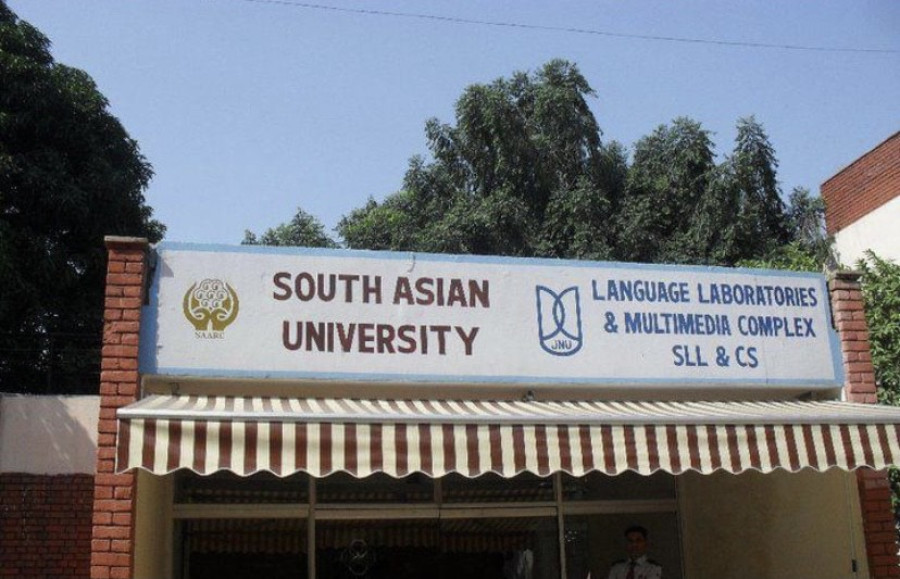National
South Asian University asks hostelers to evacuate university premises by May 10
The university is home to 40 Nepali students among whom 20 are currently staying at Akbar Bhawan Hostel in Chanakyapuri, New Delhi.
Suresh Raj Neupane
The Delhi-based South Asian University has directed its residential students to leave the hostel by May 10 citing the rising number of coronavirus infections in the Indian capital.
Issuing a notice on Monday, the university directed all students staying at Akbar Bhawan Hostel in Chanakyapuri, New Delhi, to vacate the hostel and the university premises by the nearest possible date but definitely within May 10.
The university has more than 700 students from SAARC countries; forty of them are from Nepal.
According to Yubraj Pokharel, senior hostel warden and associate professor of the university, out of the 40 Nepali students at the university, 20 are currently residing at the Akbar Bhawan hostel while the rest are day scholars.
“All students will have to vacate their hostel rooms and university premises by the stipulated date for their personal safety. They must leave for their home countries soon,” the statement reads.
The decision to direct all borders at the university to leave the hostel was taken as the capital is facing serious health and humanitarian crises, said Pokharel. The threat of the existing health infrastructures of the capital buckling under the burgeoning caseload in the next few days is looming large.
According to the statement, press releases issued by the media, state governments and hospitals have shown an extreme shortage of oxygen, beds and medicines.
“This is a precautionary measure we have taken since around 35 individuals inside the university premises have tested positive for coronavirus,” said Pokharel. “We have only one hostel building with a common mess. We don’t want to take the chance of further spread of the virus.”
However, the sudden administrative decision has left students without support and shelter in a time of extreme crisis.
“It was wrong of the university to ask us to leave our hostel in these uncertain times,” said Maheshwar Giri, one of the Nepali students at the hostel. “It’s not safe to go anywhere else in the city. We can’t even go back home to Nepal since there are no flight tickets available on short notice. We also hear that Nepal will close all international borders. We will be stranded outside if the university does not allow us to stay in the hostel.”
Some students accused the administration of evading their responsibilities and leaving the students to despair.
“Instead of adopting health and precautionary measures to keep students safe on campus, they are forcing us to leave the hostel. Health experts have pointed out the risk of travel during these times,” said another Nepali student. “We will not be safe once we leave the university premises.”
Pokharel however says the university’s intent behind the decision is anything but thoughtless.
“We have more than two dozen active cases inside the university. We can’t risk housing students here any longer than required,” he said. “If anything happens to Nepali students during their stay at the hostel, the embassy and the government will not take responsibility for it.”
The university established by the eight-member nations of South Asian Association for Regional Co-operation (SAARC) was established in 2010.
The 13th SAARC Summit held in Dhaka, Bangladesh in 2005 decided to establish the university with the objective of producing world-class educated manpower. However, formal education was started only from August 2010 on the premises of Jawaharlal Nehru University in Delhi. In July 2011, it was shifted to the present Akbar Bhawan in Chanakyapuri, New Delhi.




 16.47°C Kathmandu
16.47°C Kathmandu














